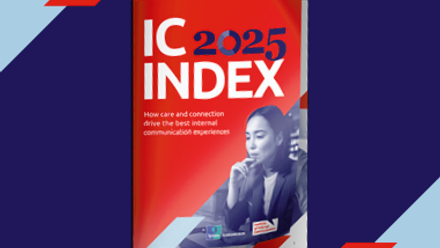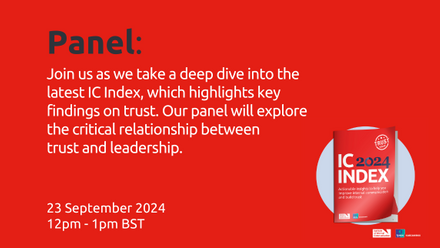In this digital age even the illusion that we can control organisational communication is truly a fairy story. It's out there in the ether, with an evolving life of its own. Our role as professional communicators has clearly changed. We still need our art to craft the corporate narrative in words and pictures, develop strategies and channels to underpin effective shared messaging but it is leaders and movers and shakers that give it meaning and relevance, both in what they say and what they do. We need to be able to support and develop influencers' communication capability to do this.
From my own experience in-house as a communicator, with too much to do, too few staff, little time and negligible budget I discovered the only way to encourage good communication was to coach leaders and influencers to do it for themselves.
Back then in the mists of the late 1990s, I thought that a coach was someone who stood on the touchlines and shouted instructions about what you should do better; someone who would meet you at half time and send you back out onto the 'field' motivated to perform your best …if you pass on your expert knowledge passionately enough others will take it, absorb it and perform better – won't they?
The bad news was I found they won't - unless they're under nine mini - rugby tots. Contrary things adults. I learned that as we mature we have a different approach to learning. We want to know how to do something when we need to and we want to do it in our own way. We don't much like advice unless we ask for it and it appears the higher up the ladder we are the less we like receiving it as it offends our sense of status. What we want and need is a structured way to reflect on and order what we know and someone to help us do it.
Happily, this how modern coaching works, you encourage people to find their own solutions and the extremely good news is that they come up with the great ideas and the commitment to bring them to life – which means less work for you!
Letting go and relinquishing control in this way, can pose quite a challenge for communicators. It means putting to one side, temporarily even, the carefully developed role of expert you've been battling for years to acquire. However, seen a different way, it doesn't mean giving anything up, it's rather gaining a subtle and vital motivating tool and achieving unexpectedly powerful results as the 'coachee' is fired up with the outcomes they have committed to, and truly appreciative of the help they've received.
It's clear to see those that learn to balance the role of 'expert' with that of collaborative coach and know how to move between both roles find they quickly build their reputation as a trusted and collaborative partner in all the walks of their life.






